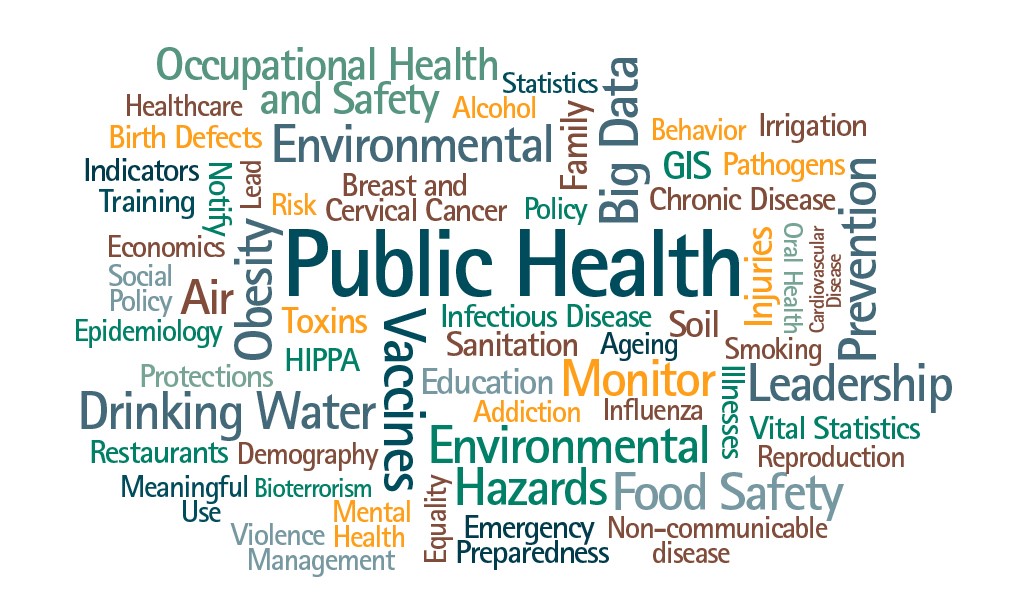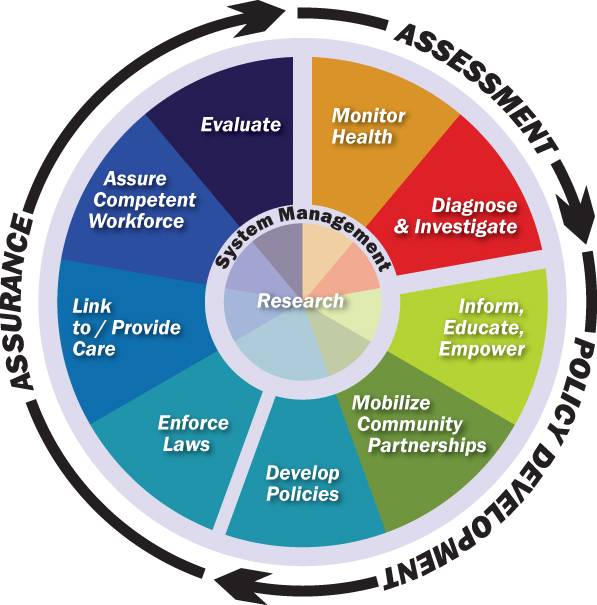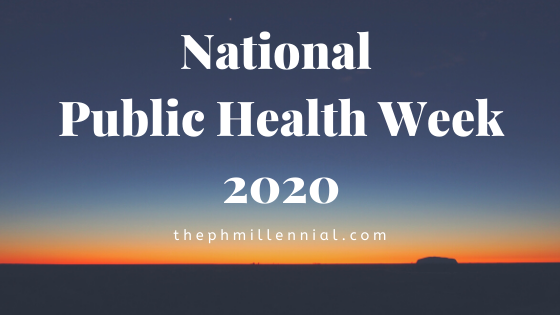This week is National Public Health Week 2020.
Public health has really taken front stage in the news worldwide. The COVID-19 pandemic has led to the public health field to be in the spotlight. Though this is good, there are many other facets of public health that are not getting the attention they need.
This week let us celebrate public health. Thank you to all those direct care providers helping those on the front lines of this pandemic. Thank you to all those behind the scenes that are working at fighting this virus.
Hopefully public health gets the respect is deserves and we can move forward on many fronts to improve the overall population’s health.
Support The Public Health Millennial on BuyMeACoffee
(Related: How I Found My Public Health Fellowship)

What is Public Health?
Public health has been defined as the science and art of prolonging and preventing disease. Public health is not focused on treatment of disease, but rather focuses on health in a broad context.
The public health systems are commonly defined as “all public, private, and voluntary entities that contribute to the delivery of essential public health services within a jurisdiction.”
Public health touches many fields and includes many different governmental, non-profit, volunteer, and funding organizations (like a Foundation).
Essential Functions of Public Health
Assessment
1 Monitor Health status to identify and solve community health problems
2 Diagnose and Investigate health problems and health hazards in the community
Policy Development
3 Inform, Educate, and Empower people about health issues
4 Mobilize Community Partnerships and action to identify and solve health problems
5 Develop Policies and plans that support individual and community health efforts
Assurance
6 Enforce Laws and regulations that protect health and ensure safety
7 Link To/Provide Care. Link people to needed personal health services and assure the provision of health care when otherwise unavailable
8 Assure Competent Workforce in the public and personal health care workforce
9 Evaluate effectiveness, accessibility, and quality of personal and population-based health services
10 Research for new insights and innovative solutions to health problems

What is National Public Health Week?
National Public Health Week 2020 is Monday 6th April through Sunday 12th April.
Each day during national public health week, there is a focus on a specific public health topic. These areas have been selected as they are essential for creating the healthiest future in the USA.
The focus of National Public Health Week is to identify what changes we can make to have a positive impact on the topic of interest.
This week is really created to spark conversations around important topics that affect many people across the country (and world). Therefore, speak up on the issues that you are passionate about.
(Related: 6 Months At My Public Health Fellowship | 5 Lessons)
Monday – Mental Heath
Advocate for and promote emotional well-being.
Mental illness are common in the US with nearly one in five adults living with a mental illness. This can vary in severity and includes many conditions.
Women have a higher prevalence of any mental illness than men. Also younger age groups had higher prevalence of mental illness than older ones.
What you can do
There are many steps you can take to address your mental health. This could be seeing a therapist, meditating, practicing gratitude and/or positive affirmations. Also you can speak up about your mental health challenges to make it easier for others to do the same.
Additionally, you can also reach out to friends. You never know when your message to check up on someone is the message that they needed to avoid a mental breakdown.
Tuesday – Maternal and Child Health
Ensure the health of mothers and babies throughout the lifespan
The US has the highest national spending on health care and yet ranks low among other developed nations for maternal and infant mortality. This indicator shows huge racial disparity in the US. Black mothers are up to 6 times more likely to die due to pregnancy complications than white mothers nationwide.
Every woman should be able to get high quality care that is easily accessible, free of discrimination and affordable.
What you can do
Advocate to end racism both at the individual level and the systems level. We need to address income inequality and racism to get to the root of the implicit bias in maternal care.
Advocate against bias training in medical schools and in health systems.
Wednesday: Violence Prevention
Violence Prevention
Violence in the leading cause of premature death in the US. In 2017, there were more than 39,000 gun-related deaths with suicide accounting for 60% of those deaths. 1 in 3 women and 1 in 4 men has experienced some form of intimidate partner violence. Additionally, 1 in 6 women has been a victim of rape or attempted rape.
There were also 1 in 7 children who reported being victims of child abuse. There were 417 mass shootings in the US in 2019.
What you can do
Speak up when you see any intimate partner abuse occurring. Be the friend that people can reach out to if they need someone to confide in.
You can advocate for stronger gun laws to ensure that there are less gun-related deaths in the future.
Thursday – Environmental Health
Help protect and maintain a healthy planet
Climate change remains the biggest threat to our existence. The environment we play, grow, live and work contributes dramatically to the overall health of populations. Built environment also plays a role in health and having access to healthy and safe places is hugely important.
Communities of color face greater community health risk (poor air quality) and few health boosting opportunities (safe places to walk or a sidewalk).
What you can do
Advocate for policies that protect and bolster communities to live healthier lives.
Use more environmentally friendly products, carpool when you can, and advocate to help those less fortunate than yourself.
Friday – Education
Advocate for quality education and schools
Education is a social determinant of health – with less education you are likely to have worse health. Unfortunately, the quality of education you get is linked to the neighborhood your grow up to and thus is linked to income. Persons living in poorer neighborhoods are more likely to have poor quality education and therefore have a shorter life expectancy than more affluent peers.
Additionally, these low income individuals usually don’t have access to the same quality of opportunities than their peers. Graduating high school is linked with an increased life span for up to 9 years. More than a third of black, Hispanic and American Indian and Alaska Native students do not graduate from high school in time.
What you can do
Advocate that their is funding for all schools within your school district. Support school based health care as this is the only care that is accessible for many in this population.
Work with your local stakeholders to establish academic opportunities, job training opportunities and other opportunities to level the playing field.
Saturday – Healthy Housing
Ensure access to affordable and safe housing
Since our health is tied to the place that we live, play, age, and work in – this is directly tied to the house you live in. There are around 6 million US homes that are considered substandard. There is also research that links housing instability to higher health care use and more hospital visits.
Additionally, healthy housing deals with lead free and smoke free housing and also being able to have affordable and safe housing.
What you can do
Advocate for affordable and safe housing for all housing types. Push for healthier designs to neighborhoods such as sidewalks, parks and street lights.
Promote housing pricing that is proportional to resident household income and also wage raises that match increasing rental prices. Lastly, advocate for emergency shelters and transitional shelters for those that have recently lost housing.
Sunday – Economics
Advocate for economic empowerment as the key to a healthy life.
The poverty threshold for a family of four was $25,465. However, the median household income was $63,179. In 2018, the US had 38.1 million people in poverty which represents a 11.8% poverty rate. There are also 6.8 million children living in deep poverty (income that’s less than 50% of poverty threshold).
Many of these low income workers work jobs that don’t provide health insurance or paid sick leave. This leaves this population more vulnerable and less likely to take needed time off when sick or only visit the doctor in the Emergency Department (which is highly inefficient and very costly).
What you can do
Support policies that lift families out of poverty and give them the opportunities needed to improve their social status and overall lives.
Advocate for access to job training and opportunities for individuals to thrive. Lastly, advocate for resources to support low income families and progressive tax polices that ensures everyone pays their fair share.
(Related: Thriving in Online Classes During COVID-19)

Summary
To summarize, National Public Health Week is used to spark conversations around 7 topics important to the pubic’s health. By having conversations, we are able to learn and come up with innovative solutions to complex challenges facing us today.
National Public Health Week 2020 focuses on:
- Mental Health (Monday 6th April, 2020)
- Maternal and Child Health (Tuesday 7th April, 2020)
- Violence Prevention (Wednesday 8th April, 2020)
- Environmental Health (Thursday 9th April, 2020)
- Education (Friday 10th April, 2020)
- Healthy Housing (Saturday 11th April, 2020)
- Economics (Sunday 12th April, 2020)
Public health is a field aimed at improving population health from the varies systems that affect it. Meaningful improvements to the topic areas above will lead to massive health gains for populations.
What conversation are you going to have for National Public Health Week 2020?



